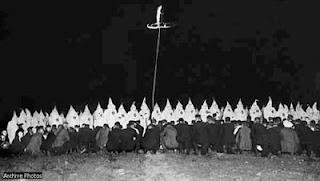The latest scandal involving Korean xenophobia has stirred up more controversy this week with a bar in Itaewon - probably the most popular area in Seoul for foreigners - refusing entry to anyone who did not have a Korean face. This was all filmed and posted on youtube http://www.youtube.com/watch?v=z6Cp7Vu9pCUfor the foreigner community to become enraged about, something that seems to be happening with increasing regularity these days. But maybe I am just surfing the internet more at work at the moment.
It occurs to me that people should be outraged by such things. I feel like I am in a minority that try to understand such actions by Koreans, and because of my family ties am a little more tolerant and realize that not all Koreans are this way inclined. I also understand that because of their history, this sort of thing is what one would expect. I will even grant them this; I understand that they feel like Westerners can behave poorly in Korea when drunk and American soldiers have not given the best impression to them in this regard especially, and that this could be the reason they refused entry to them. I will accept all of this, yet still I am offended and we still need to draw their attention to these events when they occur.
The legitimacy of their reasons for refusing entry to foreigners may be partly warranted if they have experienced bad behavior from these people in the area. But the essence of racism is that you cannot make judgments on everyone else just because a few bad eggs share common skin colour/s. The fact is they would have refused anyone with a white or black face regardless of their background; they could even have been Korean citizens for all they knew with Korean family. In another case of refusal of entry, I was also told of a nightclub in my town, Suncheon that did not allow foreigners. The reason – which I was told of by a Korean friend – is that Westerners drew too much attention to themselves, and especially drew too much attention from Korean women, which Korean men did not enjoy.
I happen to be very lucky in that I am a fair-haired white man, pretty much what they expect of a foreigner in Korea. I receive some forms of prejudice when I am with my wife but rarely when I am on my own. If I do experience any discrimination it is in a positive way, with comments about how handsome I am, or just general friendly greetings that single me out in a crowd. Sometimes, though, I wish I could spend a week of my life in a different skin colour, maybe black or South East Asian looking and feel what it is like to be them in Korea. I have the suspicion that I would have to grow a pretty thick skin and never learn Korean to a good standard; I do not think I would want to know what they are saying about me.
My students - who I really do love most of the time - give me an insight into just what they think by frequently saying racist remarks about black people. But the thing is that these kids are fantastic the rest of the time, they are great and I cannot hate them for saying any of these things. Perhaps then, we should use this as an example in the best way to react, with anger at the culture of racism and at each situation when it occurs but not at the individuals. These students are not bad, they have merely been brought up in a culture suspicious of foreigners. Their dislike of black people must have come from somewhere, and I can only think it must have come from us in the West. We have carried our own bigotry over with us when we first started having relations with Koreans and may continue it with subtle prejudice in movies and music. The thing is we have moved on a little because of our more multi-cultural societies, we have seen the bad times and learned from them, Koreans have not.
 It is easy for us to judge, but Koreans simply do not have the experience of dealing with these situations. Over the past 20-30 years they have had more exposure to these issues, but it will clearly take a lot longer for them to be resolved, so expect another scandal involving discrimination to be coming sometime soon. We sure deserve to be angry about them when they come about but we must be careful not to judge Koreans too harshly when these incidents occur. After all, what they are not doing is lynching foreigners, shooting them, or shouting foul mouthed abuse at them (at least I have not experienced this), all situations that our own countries experienced in the past (and less frequently in the present).
It is easy for us to judge, but Koreans simply do not have the experience of dealing with these situations. Over the past 20-30 years they have had more exposure to these issues, but it will clearly take a lot longer for them to be resolved, so expect another scandal involving discrimination to be coming sometime soon. We sure deserve to be angry about them when they come about but we must be careful not to judge Koreans too harshly when these incidents occur. After all, what they are not doing is lynching foreigners, shooting them, or shouting foul mouthed abuse at them (at least I have not experienced this), all situations that our own countries experienced in the past (and less frequently in the present).With all our experience in the West we sit atop an exulted position on the moral high-ground on many issues regarding discrimination, human rights, and general fairness. We also are regularly insulted by the lack of good manners in many Korean people. What we must realize is that Korea as a civilised society is still relatively young. It is not they are less intelligent than us or do not have access to current knowledge, they simply have not experienced what the societies we have been brought up in have experienced.
To illustrate this point I will use a sporting analogy; I have been a reasonably good squash player for many years and with this ability it tends to give me a natural awareness of other sports that are hand-eye related, all of which I pick up technique quite quickly. I usually can therefore watch a Tennis player, like Roger Federer, and copy his technique for a top-spin backhand and when I come to play Tennis I can play the shot fairly decently. The more I practice, however, the better this shot becomes (obviously). The same premise operates with Korean society with issues of prejudice and fairness. They know the arguments, many know how they should ideally behave but they simply have not had enough practice yet. They have had more dealings with white people and markedly less with black people and this shows in the less prejudiced view of white people. I wonder what proportion of the population have even seen a black person, let alone had any interaction with them, which could amend some of their prejudice.
These may be seen as excuses by some people but they are not, they are explanations. Explanations do not excuse, they just give some insight so that it may be possible to understand.
Because of the above, Western society is 50 to 60, maybe even 100 years ahead on issues of racial equality compared to Korea. My grandfather was undoubtedly a racist by today’s Western standards; did that make him a bad person? No, he was just a product of his time. In another example - one of the most admired men in American history - Abraham Lincoln's comments on black people can be deemed incredibly offensive by modern people:
 “I have never had the least apprehension that I or my friends would marry negroes if there was no law to keep them from it, but as Judge Douglas and his friends seem to be in great apprehension that they might, if there were no law to keep them from it, I give him the most solemn pledge that I will to the very last stand by the law of this State, which forbids the marrying of white people with negroes.” – Abraham Lincoln in the fourth debate with Stephen Douglas.
“I have never had the least apprehension that I or my friends would marry negroes if there was no law to keep them from it, but as Judge Douglas and his friends seem to be in great apprehension that they might, if there were no law to keep them from it, I give him the most solemn pledge that I will to the very last stand by the law of this State, which forbids the marrying of white people with negroes.” – Abraham Lincoln in the fourth debate with Stephen Douglas.This was just one example of plenty I could have used. This does not take away from any of his achievements and we cannot really tarnish his reputation with this. The fact is that most white people in America (indeed the world) were racist back then.
While the treatment of black people has significantly improved in the West, be rest assured that we still hold prejudices by race ourselves. Not in law, and licensed establishments cannot have them but they regularly show up in our societies nonetheless. As a white man I thought that they had almost disappeared. But as I walked down the street on a Saturday night in my country with an Asian girl on my arm, I could see and hear that they were still very much alive. And not only that, I myself had stirrings of suspicion going on in my mind when an acquaintance I knew from an opposing squash team turned up with his fiancé of the same age who he met in Thailand. If he was 60 and she was 20 perhaps I would be right to be suspicious but surely they should be given the benefit of the doubt as they were the same age. It is my reckoning that this doesn’t happen for them an awful lot.
We also still experience many race hate crimes and these tend to be more severe than in Korea. So when we jump too much on our high-horse, Korean people can quite rightly point out these problems in our own societies.
With all this in mind the reaction to past, present, and future stories of racism in Korea should be one of almost equal outrage and understanding, we are right to be angry but we could temper this with the realisation that own culture has traveled a long way and still has further to go. Korean racism exists and their prejudice probably occurs in a greater percentage of the population than in the West, but it is possibly in a less destructive form. This perspective could hold the key to better relations between us and rid ourselves of the ridiculous notion that the color of people's skins can determine their character and behaviour, something that deep-down is an idea that more of us indulge in than we would care to admit.
